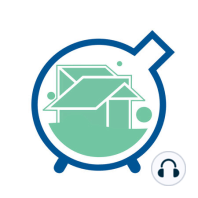21 min listen

Water, Water, Everywhere (In Its Fourth State Too)
Water, Water, Everywhere (In Its Fourth State Too)
ratings:
Length:
34 minutes
Released:
Jun 23, 2016
Format:
Podcast episode
Description
In this episode of The Building Science Podcast, Kristof explores all the great mysteries of water (especially the water you don't see).The Commonly Known Stages of WaterPure water is tasteless, odorless, and colorless. Water can occur in three states: solid (ice), liquid, or gas (vapor).Solid water—ice is frozen water. When water freezes, its molecules move farther apart, making ice less dense than water. This means that ice will be lighter than the same volume of water, and so ice will float in water. Water freezes at 0° Celsius, 32° Fahrenheit.Liquid water is wet and fluid. This is the form of water with which we are most familiar. We use liquid water in many ways, including washing and drinking.Water as a gas—vapor is always present in the air around us. You cannot see it. When you boil water, the water changes from a liquid to a gas or water vapor. As some of the water vapor cools, we see it as a small cloud called steam. This cloud of steam is a miniversion of the clouds we see in the sky. At sea level, steam is formed at 100° Celsius, 212° Fahrenheit.The water vapor attaches to small bits of dust in the air. It forms raindrops in warm temperatures. In cold temperatures, it freezes and forms snow or hail.But what about this mysterious fourth state? Tune in to find out! Also, be sure to check out this psychrometric app to run your own humidity experiments.
Released:
Jun 23, 2016
Format:
Podcast episode
Titles in the series (100)
Phase Change Materials: In this episode we explore the strange and wonderful phase change materials that just may alter the way we think about buildings. by The Building Science Podcast